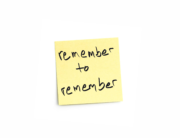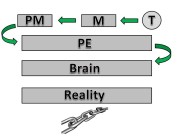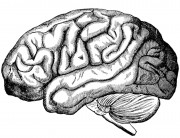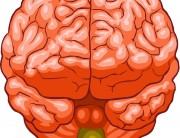The idea for this article came to me some time ago. I cannot say how long specifically because I’ve avoided writing or thinking about it as much as possible, so the timeline has become a bit fuzzy. This isn’t because I think this subject is boring, or useless, or unoriginal, or any of those reasons. I have been procrastinating, something that I am especially adept at. If they ever make procrastination an Olympic sport, I will win the gold medal for sure, as long as I got around to registering for the competition. I know that I procrastinate. Everyone who knows me reasonably well also knows this about me. Many of my clients know this about me. It’s one of the reasons that I don’t let it bother me when other people procrastinate. Given my familiarity with procrastination, the question that must be asked is not regarding how I procrastinate, it is regarding the reasons why I do so.
The word procrastinate, according to its Latin roots, means quite literally to “put off until tomorrow”. Wow, that means that even by procrastination standards, I’m an over-achiever. I’ve been putting some things off for years! I procrastinated throughout school, from early grades through graduate school. In the end, through some inadvertent, highly unplanned preparedness, I ended up finishing my Masters Graduation Project with a few weeks to go in my final quarter. I didn’t know what to do with myself. It marked the first time in all my years of school that I had finished something ahead of schedule.
It was not untypical of me, during my undergraduate education, to go to school early in the day, with ten chapters to be read and studied before the midterm exam that afternoon, only to be pulled into a conversation in the parking lot, a game of pick-up basketball in the gym (leading to seven more games), a quick snack in the cafeteria (and by quick, I mean the opposite of quick), another conversation in the hallway, some internet surfing and email checking, and only then, with an hour to go before the exam, would I find a quiet place and skim the chapter headings and use the index to answer the review questions.

I may or may not have said this at one time or another.
The last hour was often an anxious one, so why did I stay stuck in this pattern for so long? Simply put, it was because I got away with it. I did really well. I got good grades, often acing those exams. But the question must be asked, if I could do that well with such minimal preparation, how much better (and less stressful) would it be if I could just keep up throughout the semester? Certainly I would want less stress in my life, wouldn’t I? Well, maybe it’s not so simple. Let’s look at three different kinds of procrastination and see which of them explains the pattern of putting off that has been so persistent throughout my life.
1. Forgetfulness
It may come as no surprise to you that I have ADHD. While distractibility and impulsive behavior are the stereotypical hallmarks of this condition, forgetfulness is inextricably linked to the same underlying brain issue. I have a great memory for facts, figures, names, movie quotes, and directions. I can track group conversations and recite them back, person-by-person both in the short-term and long-term. What I struggle with is remembering where I put my keys, wallet, phone, tape measure, or pen. Because my senses are consciously processing much more information than is actually necessary, there are times when new information passes across my consciousness like a wave on the sand. It is quickly absorbed by the sand, but there is no remnant of it left behind. What I mean by this is that I have a sense that I’m forgetting something but I don’t know what it is that I’ve forgotten.

This is my “Oh crap! I just remembered …” face
This particular kind of memory is known as working memory. We can define working memory as “remembering to do”. Good working memory allows us to become distracted from our task and then pick up where we left off. Poor working memory inhibits our ability to do this. Working memory is one of the main impairments with ADHD. It doesn’t seem to matter how important the task or information is. A stranger’s phone number is just as likely to be forgotten as the due date on mortgage payment. It’s not a matter of importance; it’s a matter of processing capacity.
Of course, while people with ADHD struggle with this to a great extent, we do not have exclusive rights to working memory problems. Anyone who is stressed out or has a lot on their plate, particularly if those demands are simultaneous, will struggle in the area of working memory. Think about it practically. If three different people ask you to do three different things all at the exact same time you would have a hard time, ADHD or not, getting it straight in your mind what exactly was expected of you. For the ADHD brain, this is a daily and constant experience. However, even without ADHD these situations do present themselves.
Whether you are a parent of young children, an owner of demanding pets, an employee in a fast-paced work environment, or some combination of all three, you’ve probably found yourself in this position before. The requests come fast and furious, all with their own urgency. In these cases, some very important things keep getting shoved to the back burner. Because they were never fully consciously processed in the first place, they are like that wave on the sand. They soak into your brain without leaving a visible impression. You are left with the sense that there’s something else you’re supposed to be doing but you don’t know what it is.

I forget why this picture is here…
I suppose that in the case of forgetfulness, we are not talking about procrastination in a technical sense. Procrastination due to forgetfulness is not a conscious decision, for the most part. It is directed by an automatic process in your brain. Your brain will prioritize, like a grumpy triage nurse in the emergency room, the tasks that it believes are the most pressing. Because the brain is focused on survival, it is also focused on short term, easily-accomplished tasks. This means that if your brain has to choose between tending to the crying child and paying the bills online, it will naturally prioritize the crying child because it is the most immediate crisis.
However, the problem arises when, after the immediate crisis is averted or dealt with, the crisis of lesser immediate importance has already faded into the background of your brain. Often, the next time we think of it is when someone or something reminds us of it. Unfortunately, this often happens at another time of inconvenience. It doesn’t do much good to remember to call the bank after the bank is closed. So we tell ourselves that we have to remember to call tomorrow. However, it quickly slips from consciousness back to its resting place in our unconscious brain.
What to do?
My first suggestion is to learn all you can about ADHD. There’s lots of stuff online and I would suggest starting with the website of CADDRA.ca or CHADD. There are lots of screening questionnaires and tests that you can explore that will help you determine whether you have a chronic working memory problem or if it is more driven by your environment. If you find that you have ADHD, it is easily treatable through medication prescribed by your doctor. While medication isn’t the only solution, it is certainly the fastest and most effective solution, if you indeed have ADHD.
Even if you do have ADHD and take medication, there are other ways to improve your working memory. Apps like Fit Brains have brain training games specific to working memory, along with other executive functions in your brain. Another useful app, although not quite as fun, is called N-Back Suites. It’s rather complicated to explain, so just click the link if you want to know what I’m talking about.
Activities like this, along with the other ones that you may devise yourself, actually improve your working memory the same way that exercise will strengthen the muscle. In fact, that’s not just an analogy. The connections between different groups of cells in your brain will strengthen and their communication will become more efficient. The brain is much more changeable than we realize. If you have a poor working memory, it doesn’t have to stay that way.
If you have tried medication and are working on improving your working memory, the next area of solution is your environment. If you find yourself in a situation where multiple people are making multiple requests at the same time, don’t count on yourself being able to remember all of them. This is a hard thing for us to acknowledge. We will find ourselves saying, “No, it’s okay. I think I’ll remember this time.” In fact, you probably won’t. This doesn’t make you weak or deficient in some way. It makes you human. Using electronic devices as an external form of memory is a blessing of technology.
While some have expressed the concern that overreliance on these devices may impair your brain’s ability to develop these skills on its own, and while that is likely true to some extent, in the meantime, you do need to remember to pay the mortgage, go to your dentist appointment, or switch the laundry from the washer to the dryer. There comes a time when practicality outweighs principle. As long as you are not overly reliant on technology for your working memory and you are practicing and working at it to develop a stronger working memory, you don’t need to worry about that part of your brain turning to mush, as the media has catastrophized.

Not a very realistic fear. Especially with all the new wi-fi innovations…
In my family, ADHD is as commonplace as eggs in a chicken coop. Because of this, we have adopted a family slogan: Later Means Never. This means that when we are asked to do something, “I will do it later” is not an option. This is not because, as parents, we are controlling and demand immediate compliance; it is because we know, from long experience, that we will not, in fact, do it later. We will forget. So do it now. In fact, this motto has become so ingrained in our family that one time, when asked what time we were going to grandma and grandpa’s house, I replied that were going to go a little bit later, only to hear my then five-year-old son called out from the other end of the house, “later means never!” I had to explain to him the different context but at the same time I was happy to know that it was sinking in. So, to review what to do:
1. Explore the possibility of ADHD.
2. Train your brain in the area of working memory
3. Use technology to assist you in remembering
4. Accept and acknowledge that it is a struggle.
The next installment in this series will address the second kind of procrastination: lack of motivation. Even as I write that sentence, my brain is telling me to take a break and get to it later. I guess we will see whether I follow my own advice.


















































Recent Comments